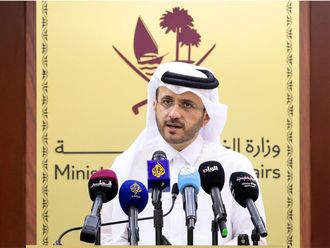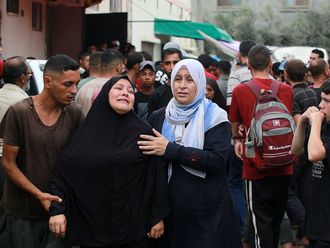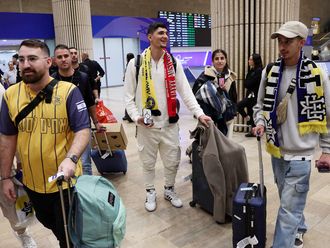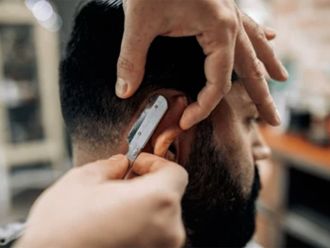_resources1_16a0851e4a2_medium.jpg)
BEIRUT: The armed Hezbollah group will back Christian politician Suleiman Frangieh to be Lebanon’s president, its leader said on Monday, a move that gives him important support but does not immediately secure his election.
Lebanon has had no head of state since former President Michel Aoun’s term ended at the end of October, deepening institutional paralysis in a country where one of the world’s worst economic crises has been festering for years.
“The natural candidate we support in the presidential elections is (former) minister Suleiman Frangieh,” Hezbollah leader Hassan Nasrallah said.
Frangieh, 56, is heir to an old Lebanese Christian political dynasty and a friend of Syrian President Bashar Al Assad.
His grandfather of the same name served as president from 1970 into Lebanon’s 1975-90 civil war.
Frangieh has the support of House Speaker Nabih Berri’s Amal Movement party but still appears to fall short of the 65 votes required for him to be elected in the 128-member legislature.
A Hezbollah ally, he appeared close to becoming president in 2016 but Hezbollah’s support ultimately went to Aoun - another of its Christian allies who now have a 19-member bloc in parliament but have opposed Frangieh’s election.
Frangieh’s candidacy is also opposed by the Lebanese Forces (LF), a party which also has some 20 lawmakers in parliament and is led by Christian politician Samir Geagea.
Frangieh’s parents and sister were killed by the Lebanese Forces militia in 1978 at their home in the north of the country. Frangieh held Geagea - an LF commander at the time - responsible for the raid.
Geagea has denied taking part, saying he was wounded before reaching the house. The two reconciled in 2018.
FOREIGN ROLE
Foreign states have historically played a part in determining the presidency’s fate in a country that has been a theatre for international rivalries.
In 2008, a six-month presidential vacuum was brought to an end by a Qatari-mediated deal backed by other powers.
Last month, representatives from France, the US, Saudi Arabia, Egypt and Qatar met in Paris to discuss how to end the political stalemate in Lebanon, though the meeting did not result in the clear backing of any one presidential candidate, according to people briefed on the meeting.
A Lebanese political source and a European diplomatic source told Reuters that Saudi Arabia has opposed Frangieh’s candidacy given his close relationship to Assad and Hezbollah.
Saudi Arabia in the past spent heavily on supporting Lebanon but ties have soured over Hezbollah’s growing role at home and in the region.
“Hezbollah are sending a signal to regional powers that Frangieh is officially their candidate and are saying they are not ready to consider a plan B,” said Karim Emile Bitar, director of the institute of political science at Beirut’s Saint Joseph University.
“This could lead to a protracted political struggle and further delay presidential elections.” Hezbollah and its allies have close ties to Syria and Iran, while their opponents in the Christian and Sunni communities traditionally look to the West and Gulf Arab states.
The presidency has fallen vacant several times since the 1975-90 war, including for 29 months before Aoun was elected in 2016 in a deal that saw Saad Hariri elected prime minister.












